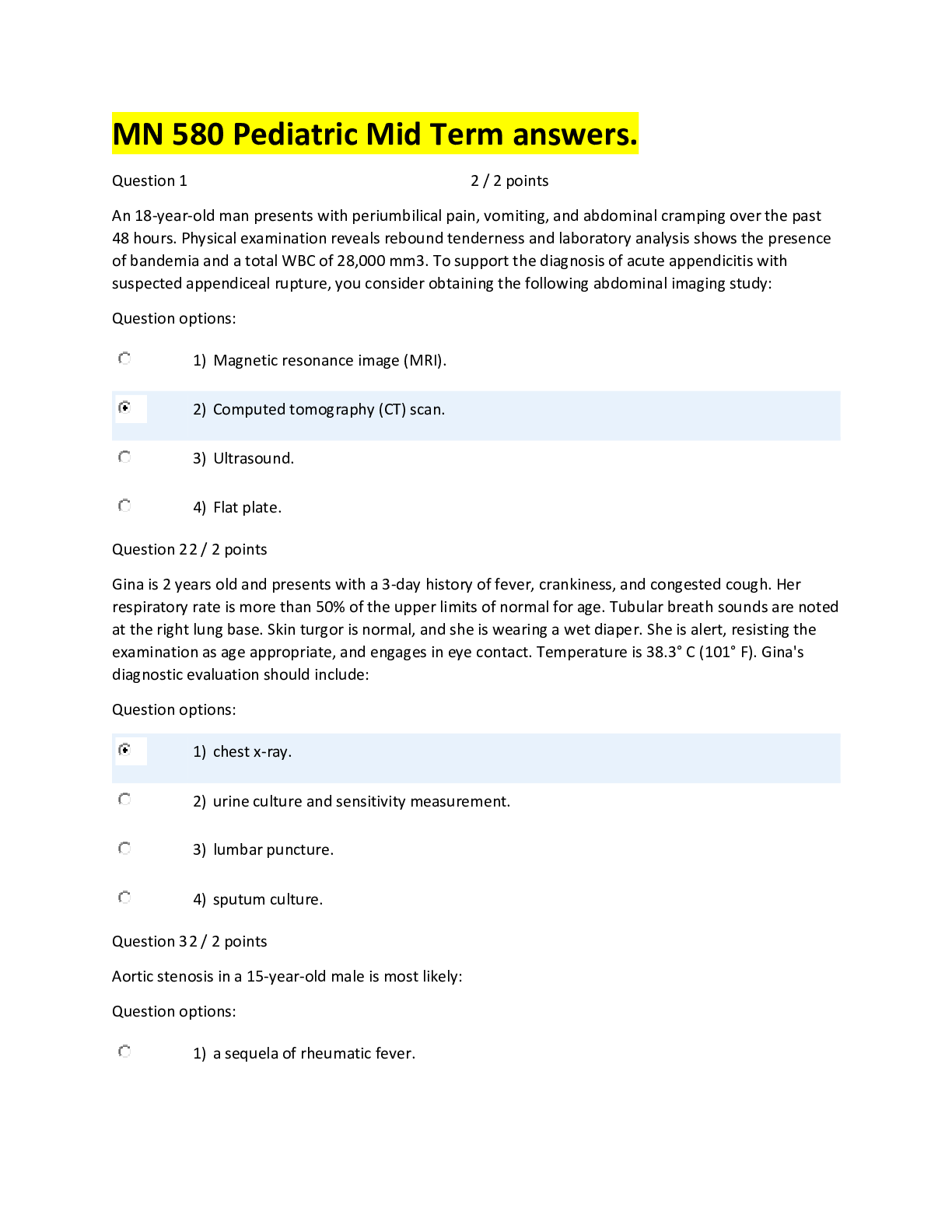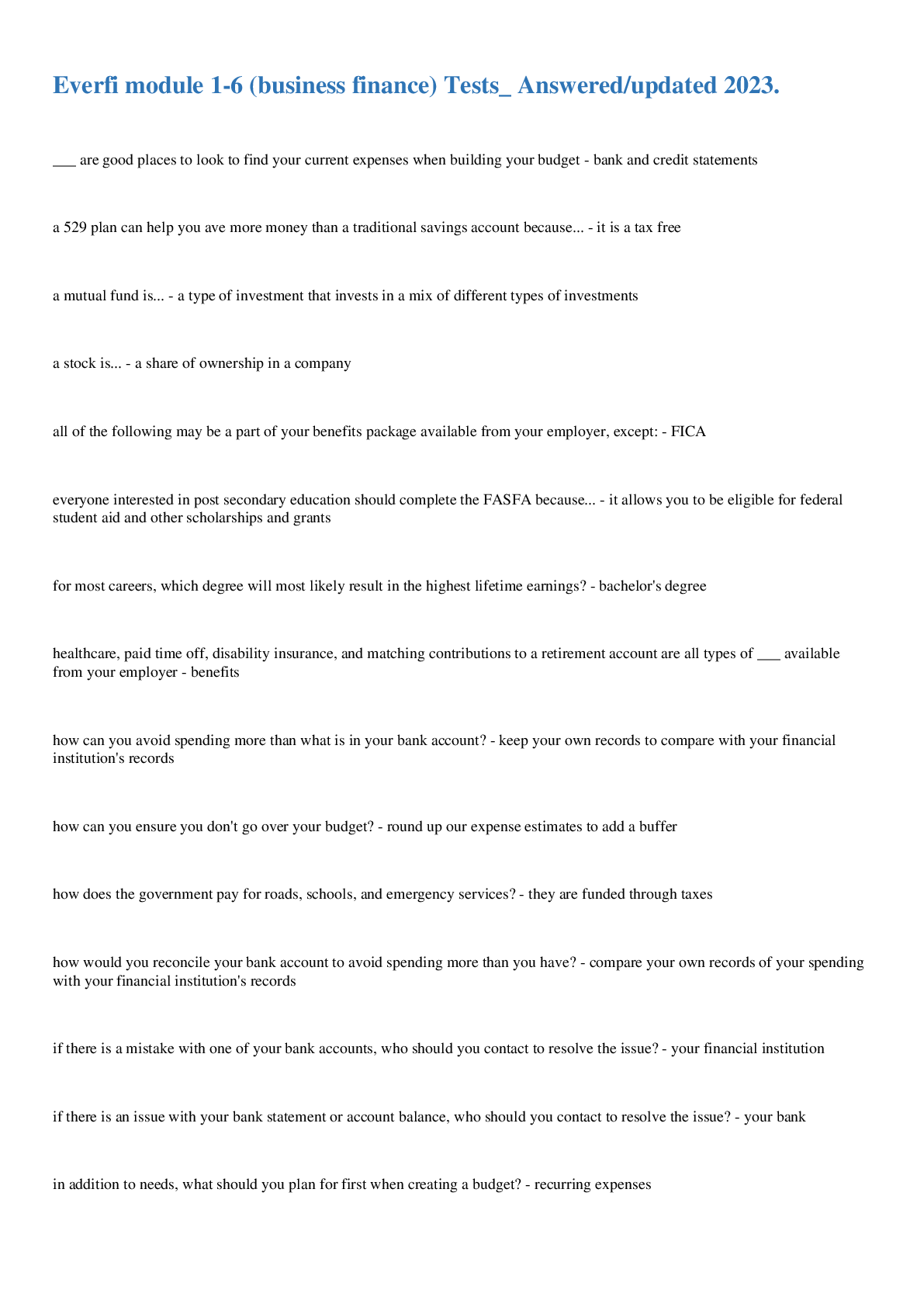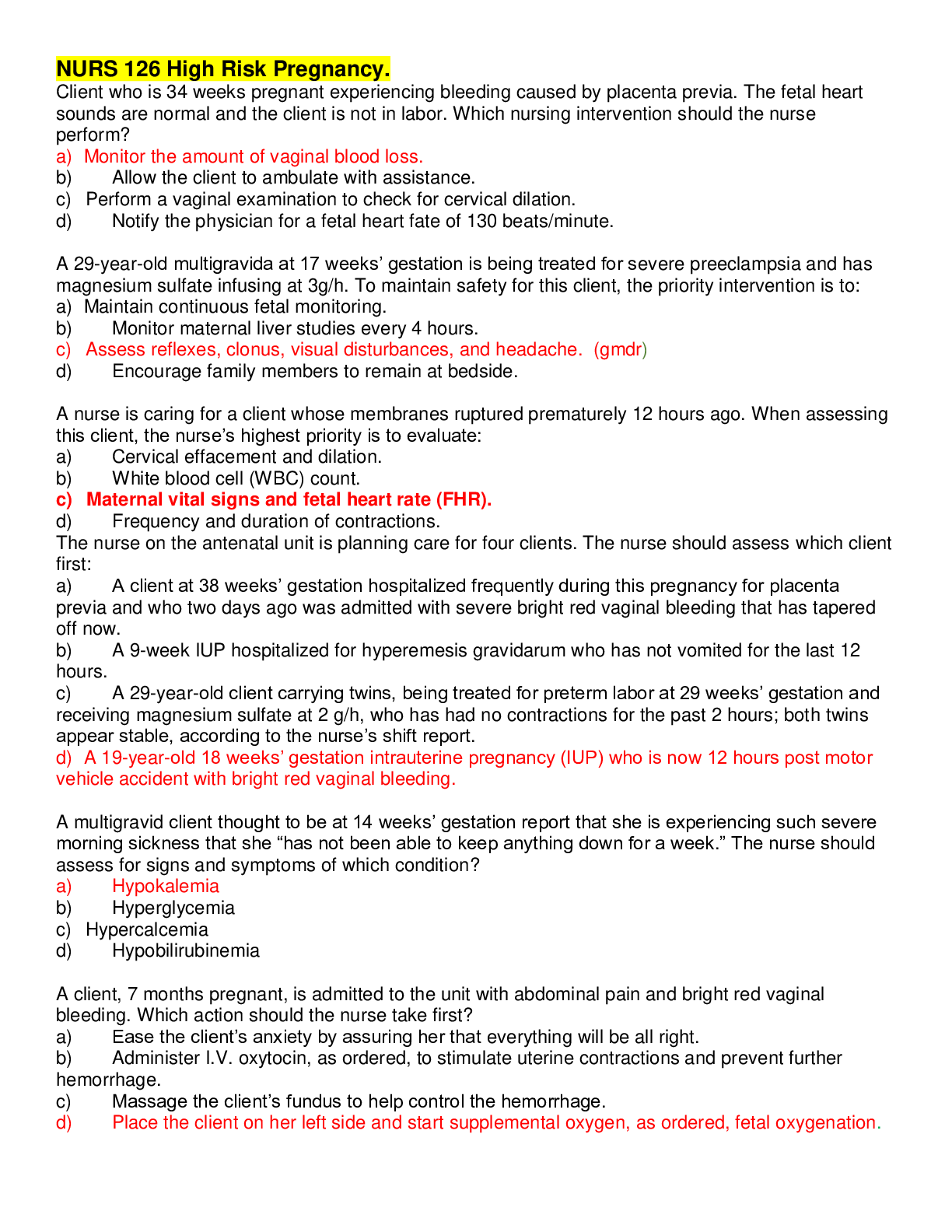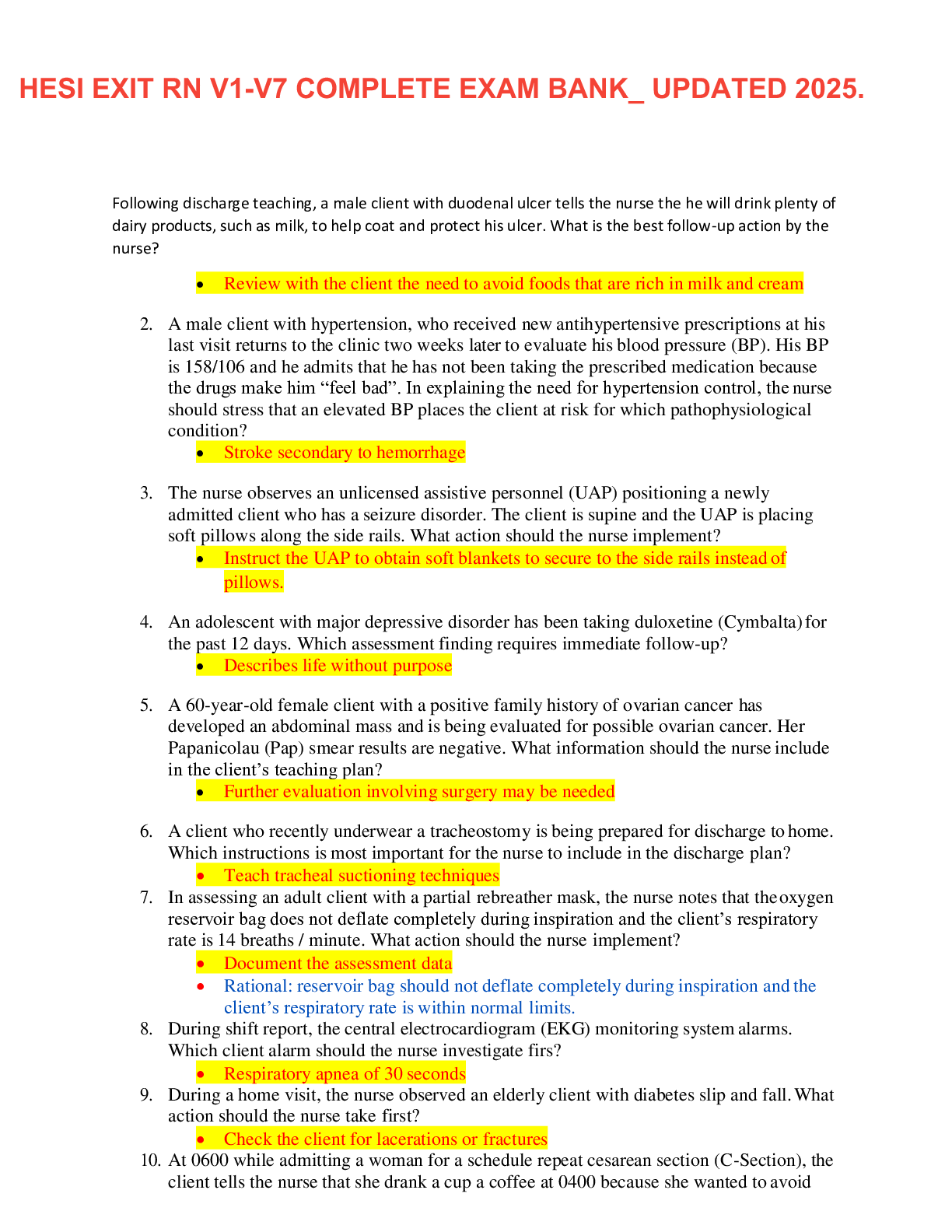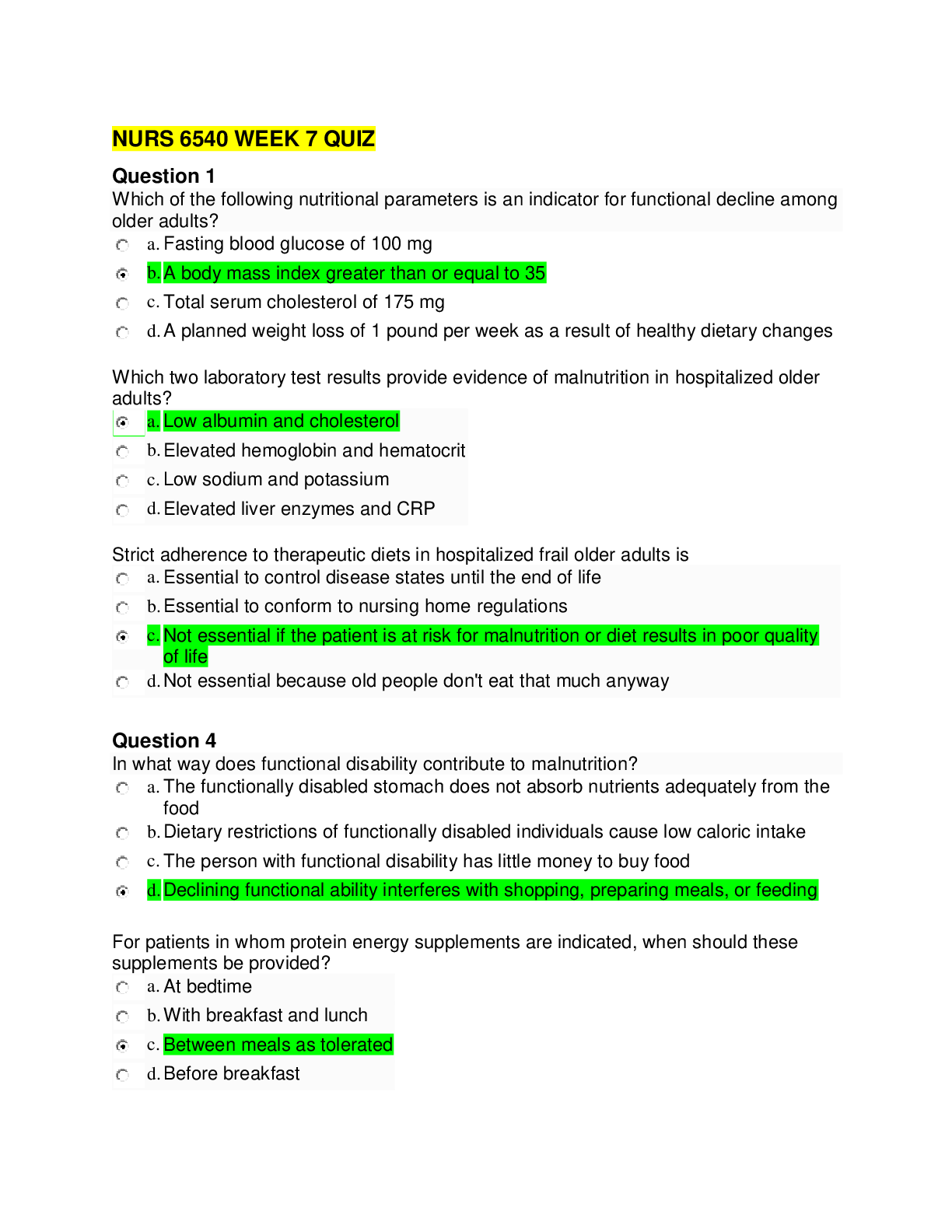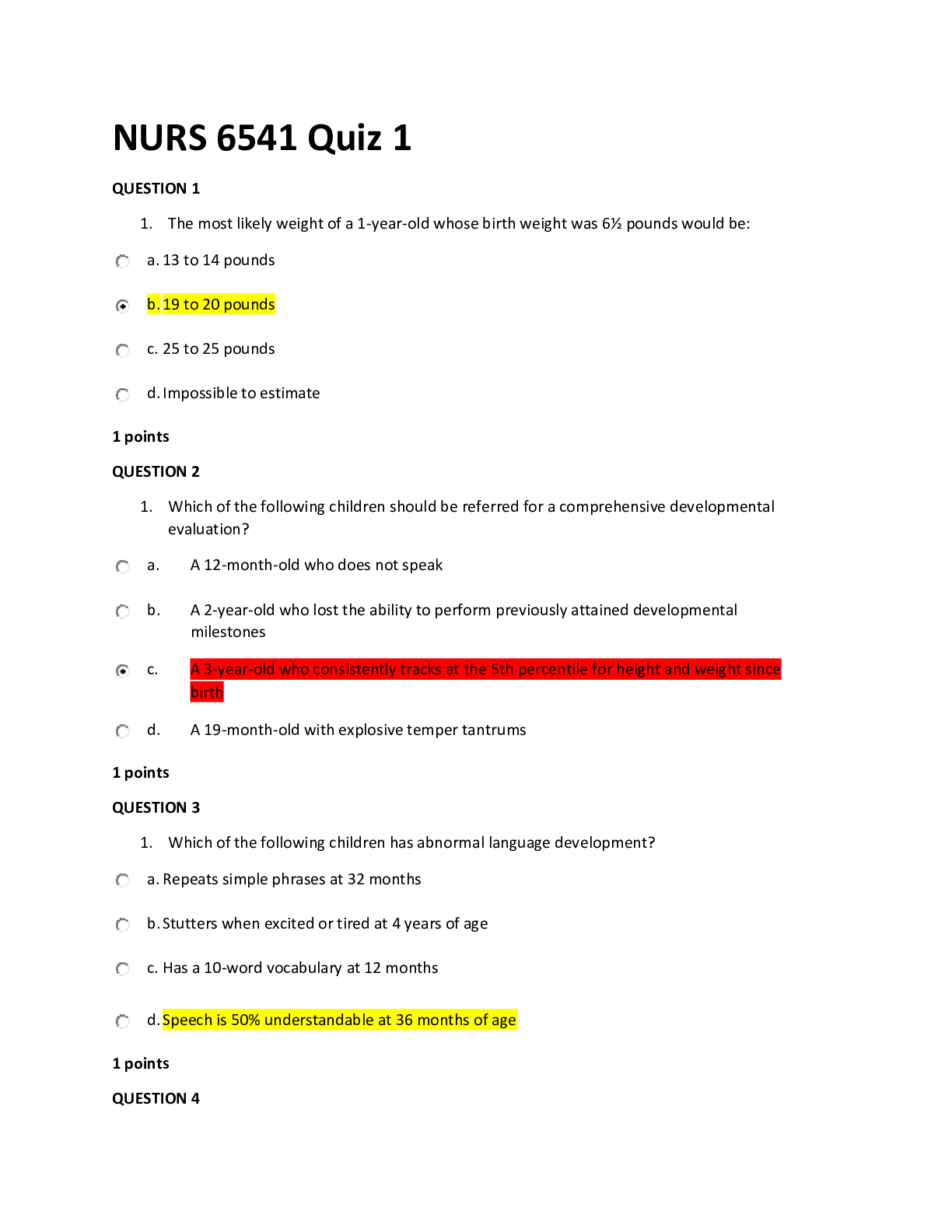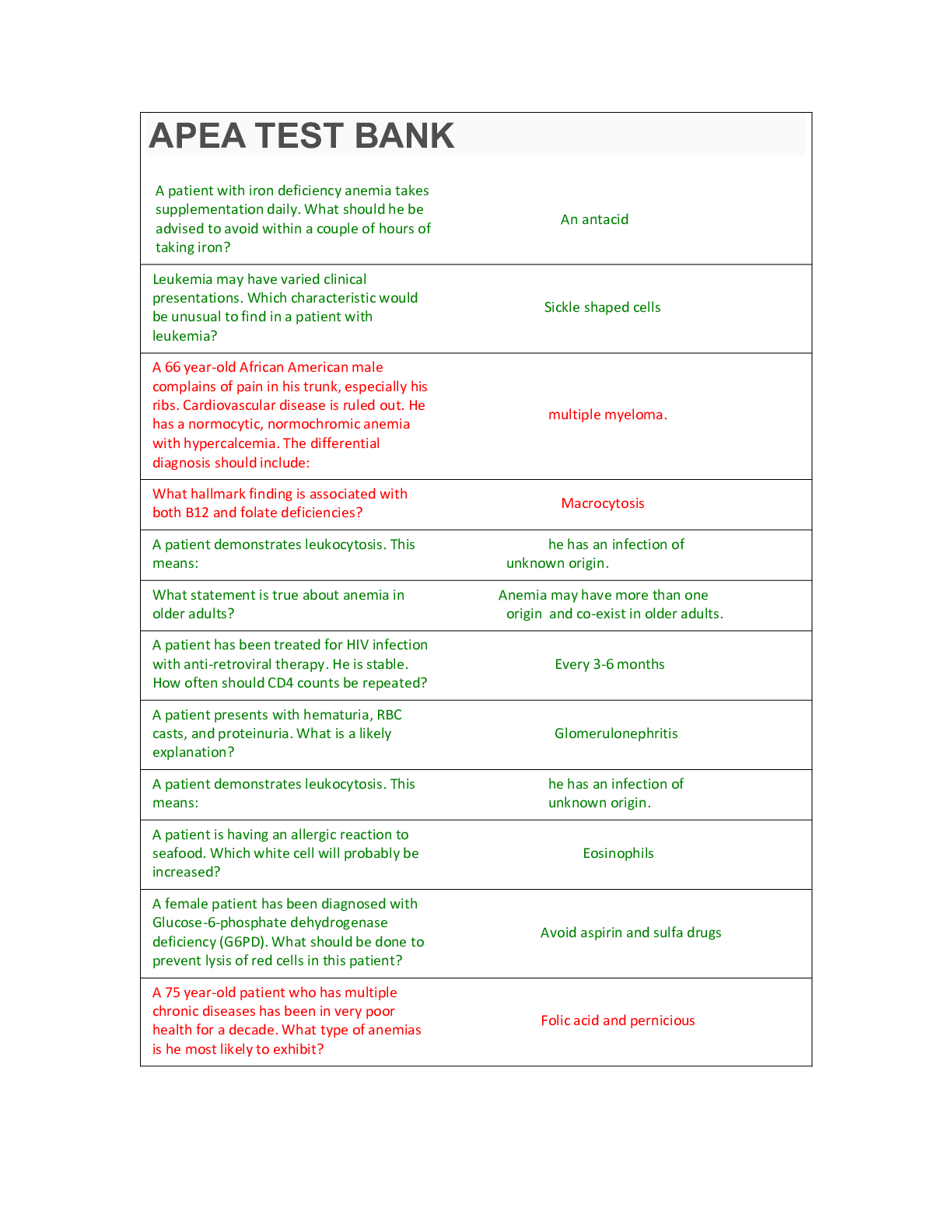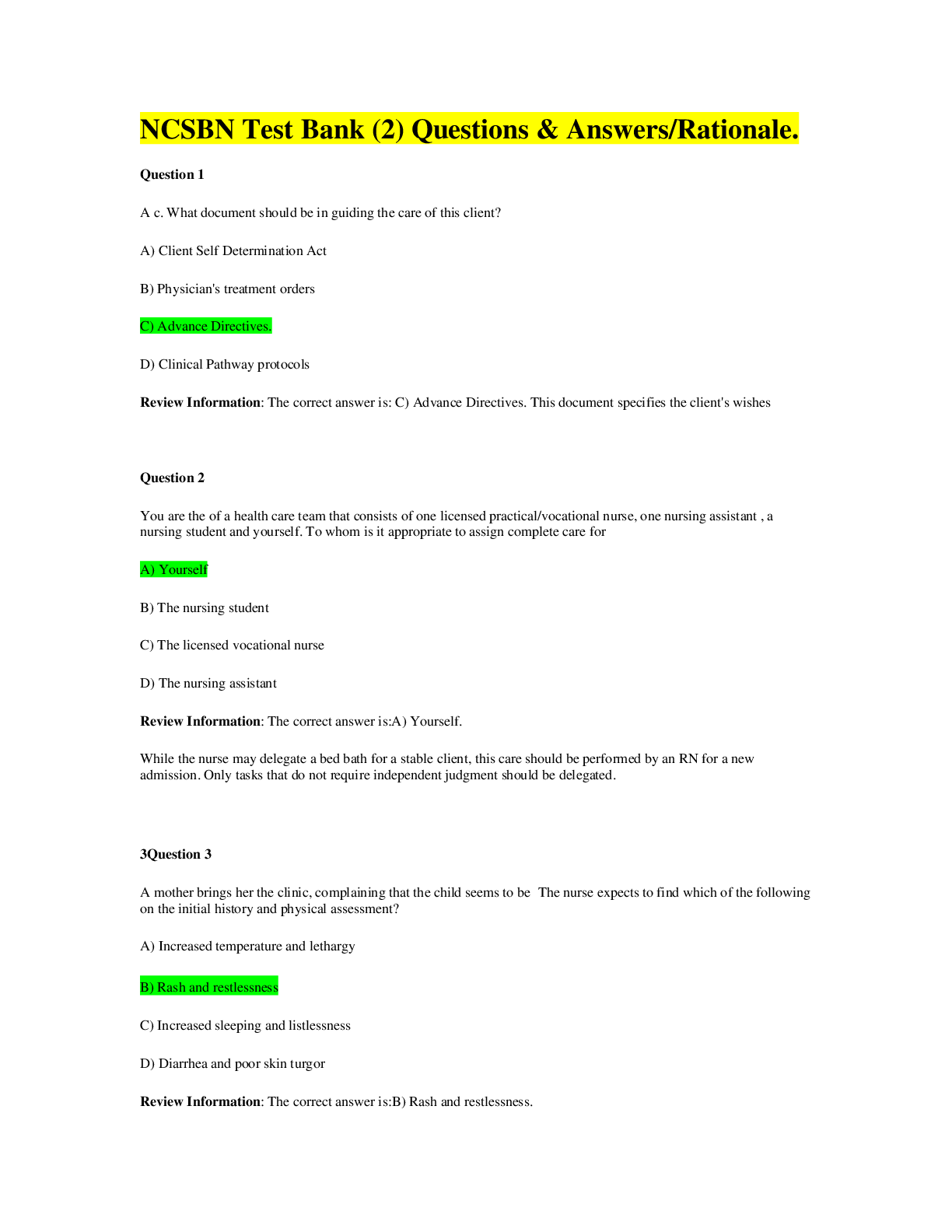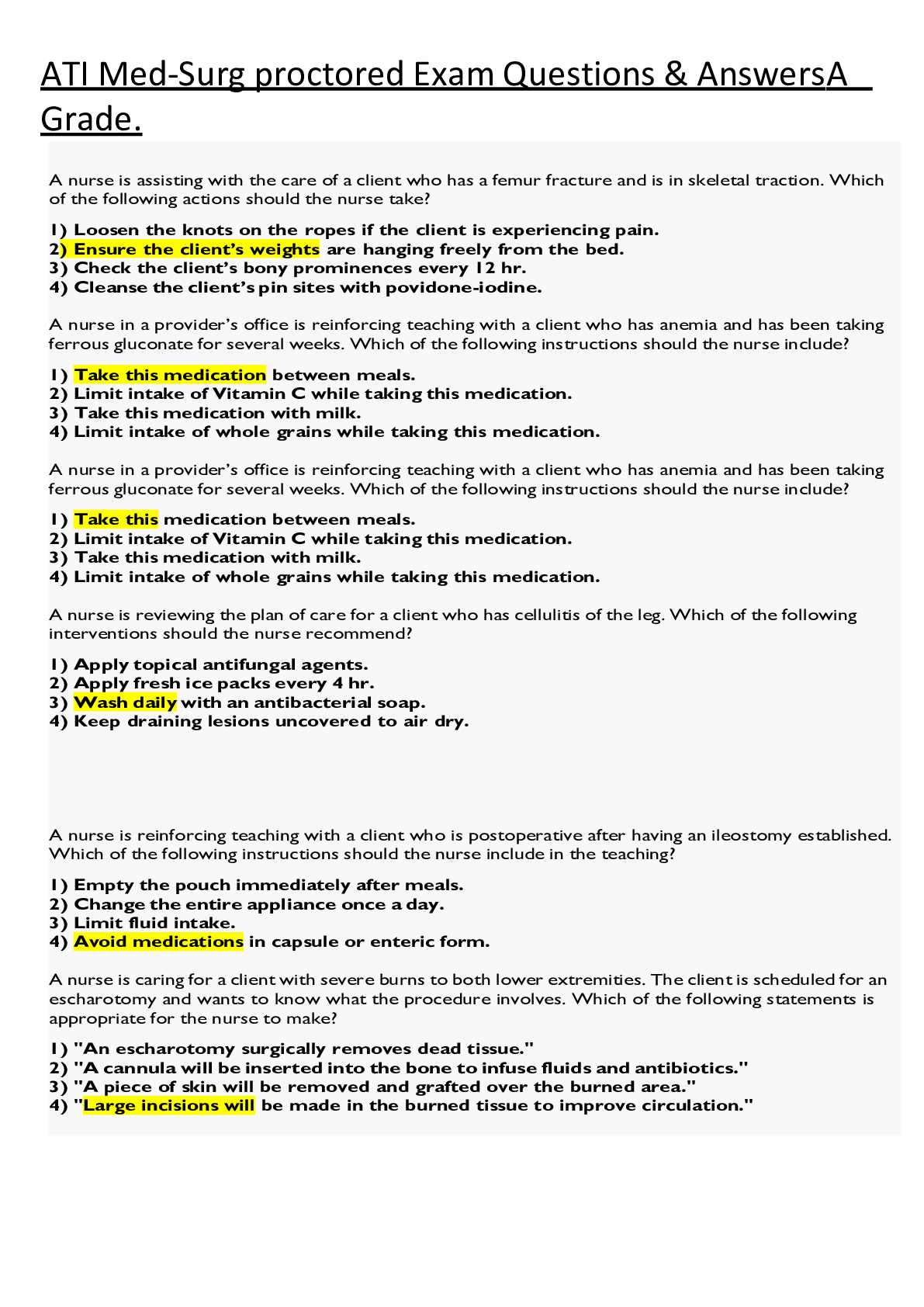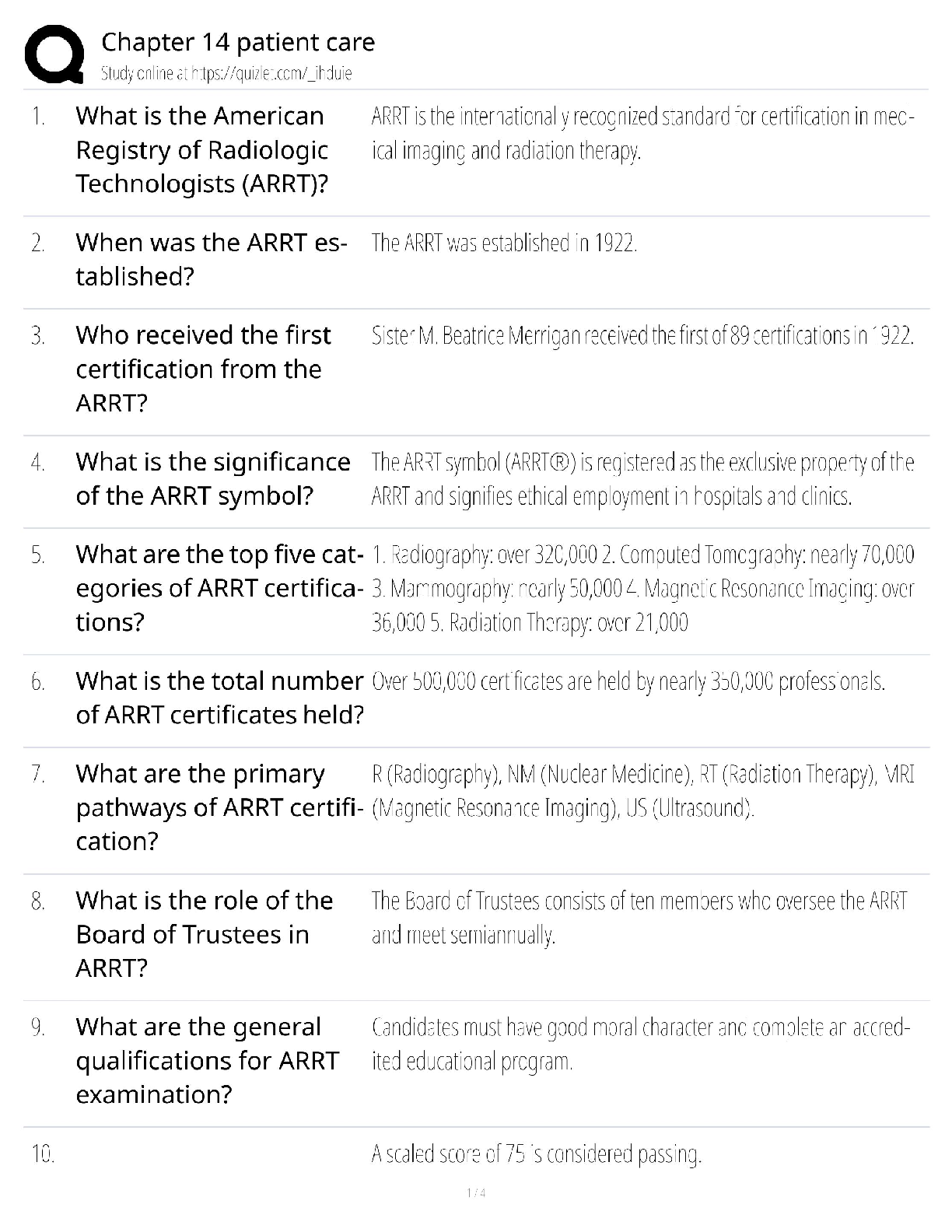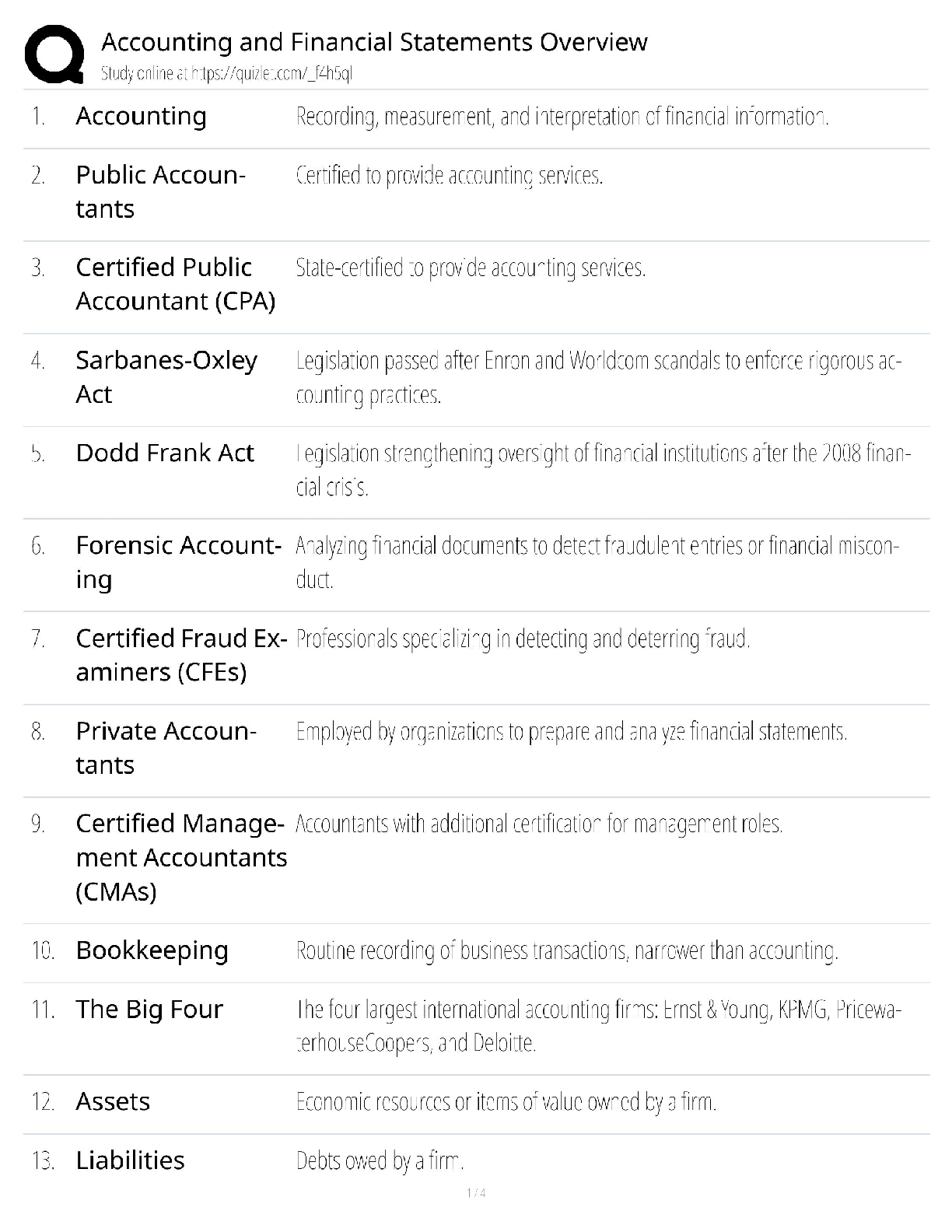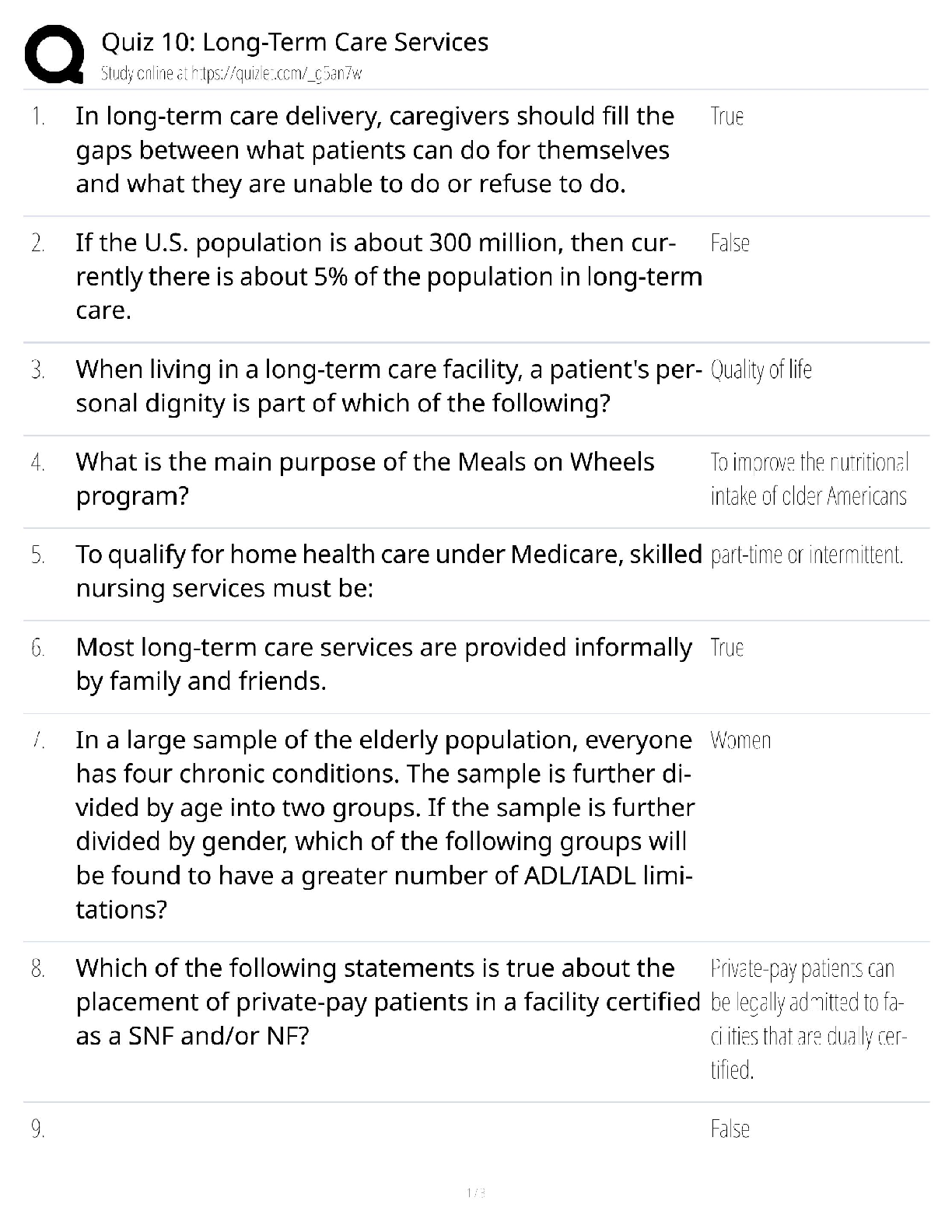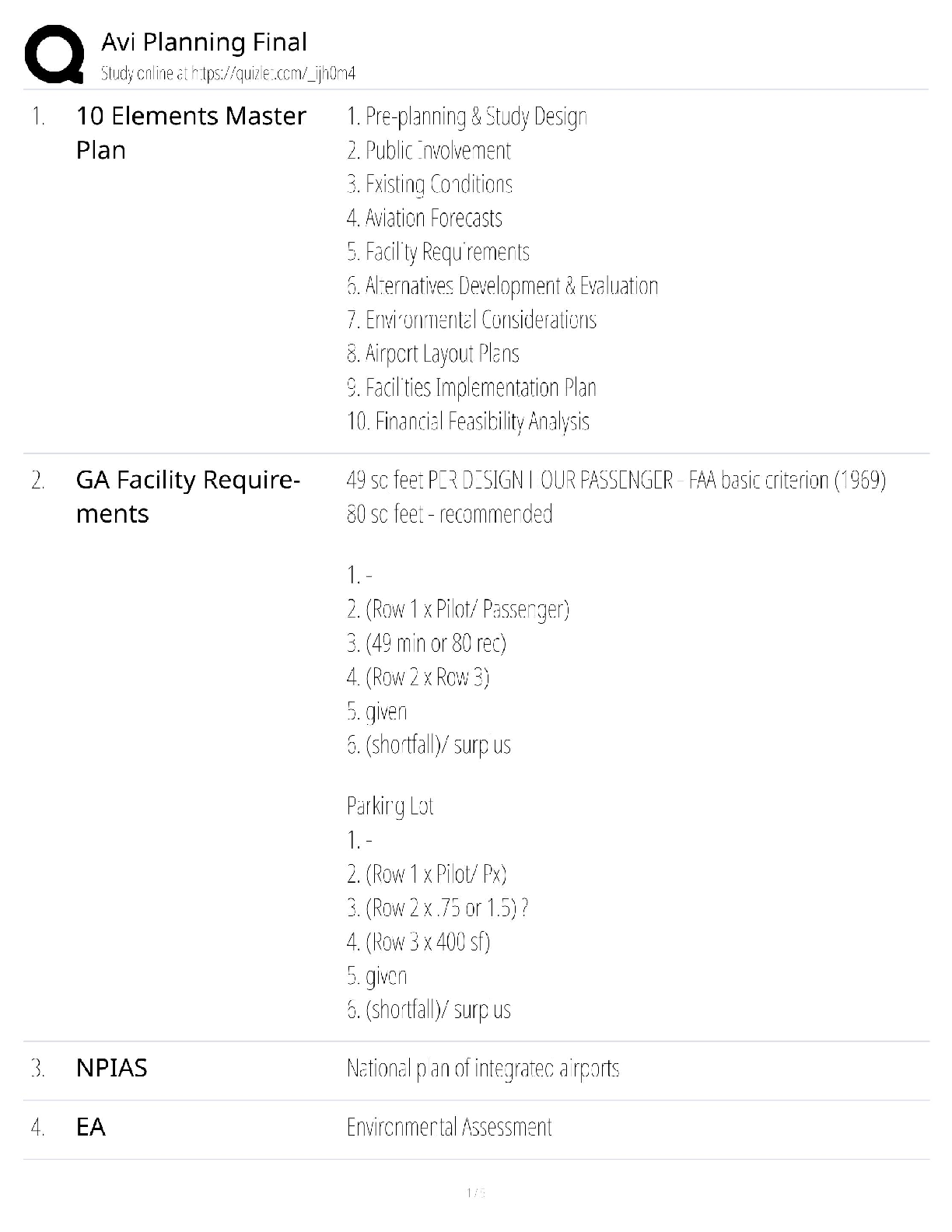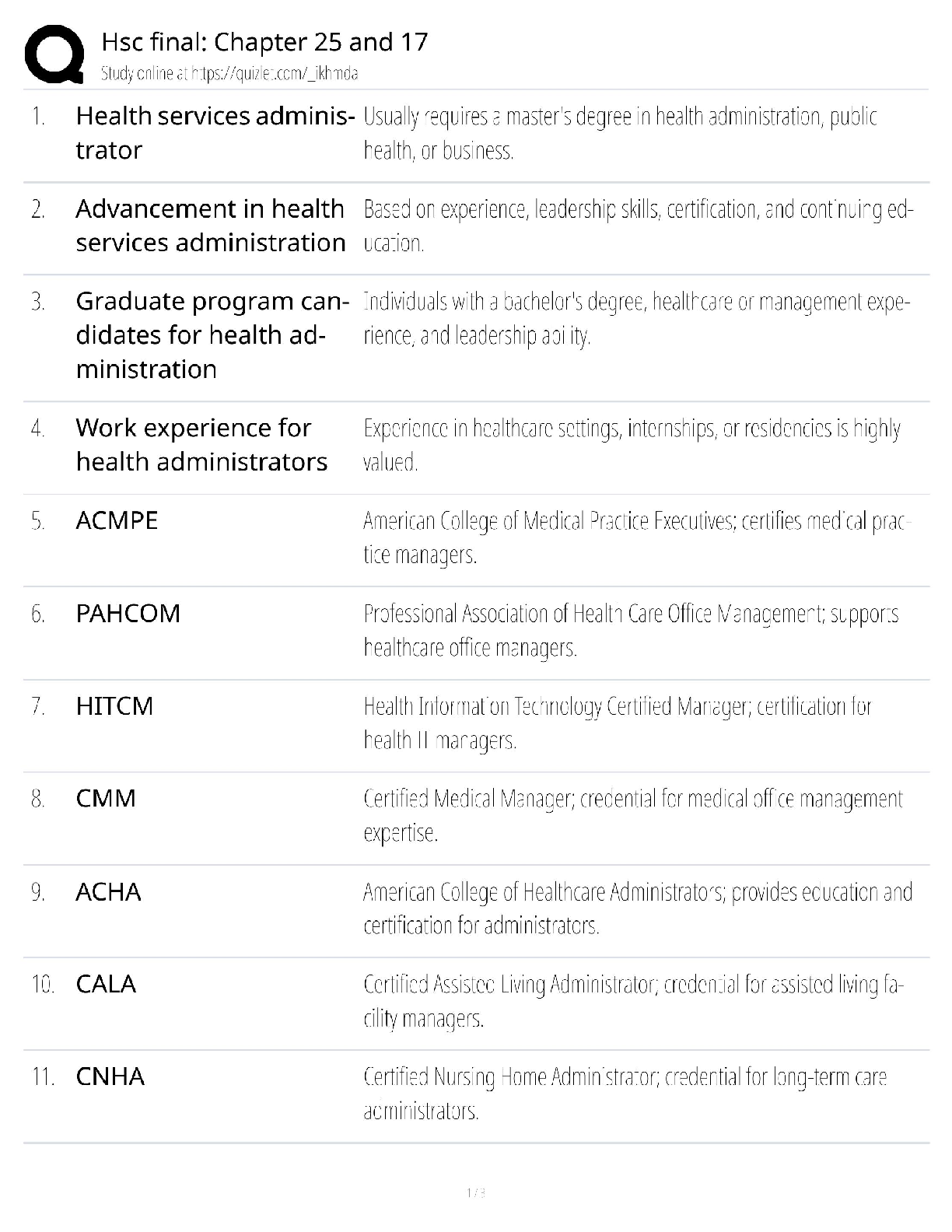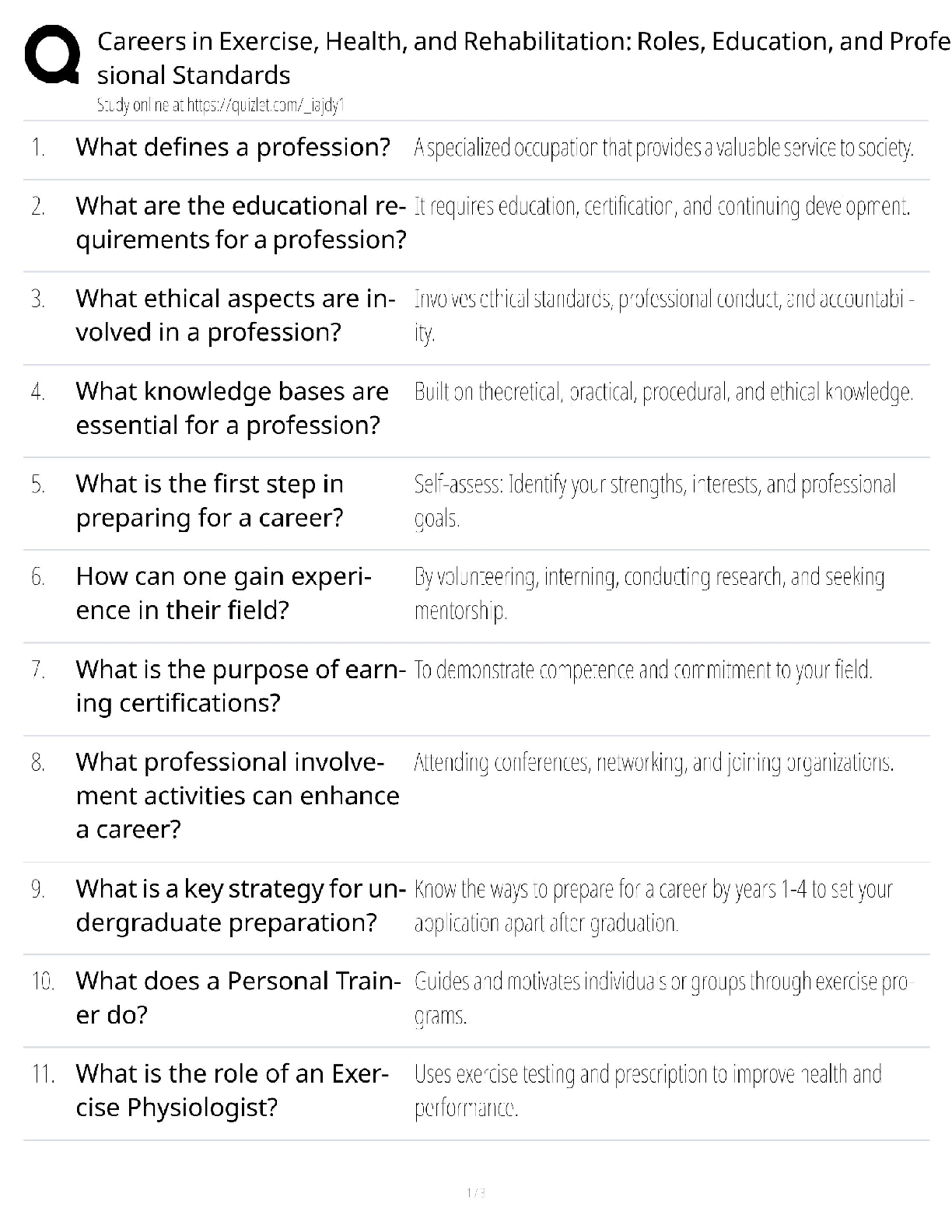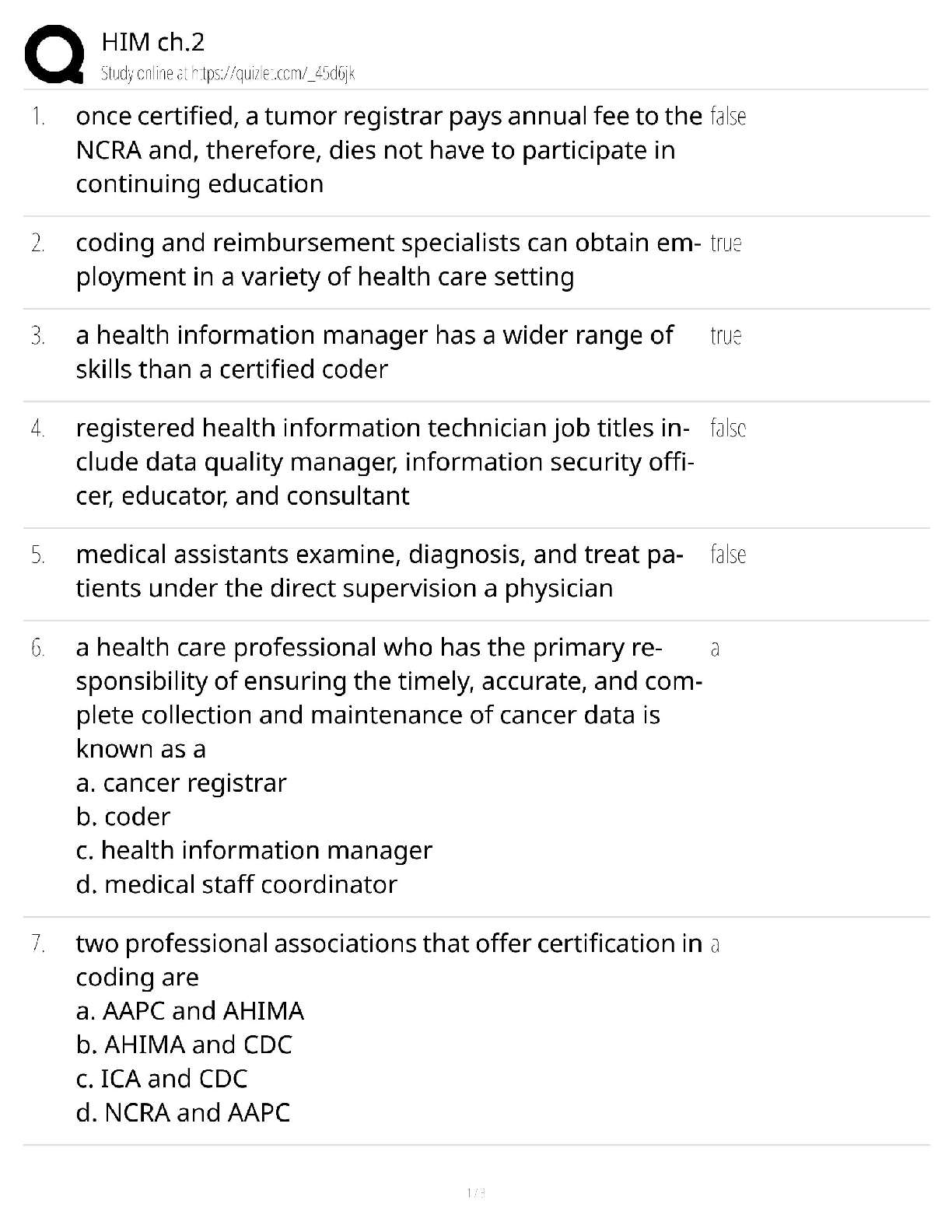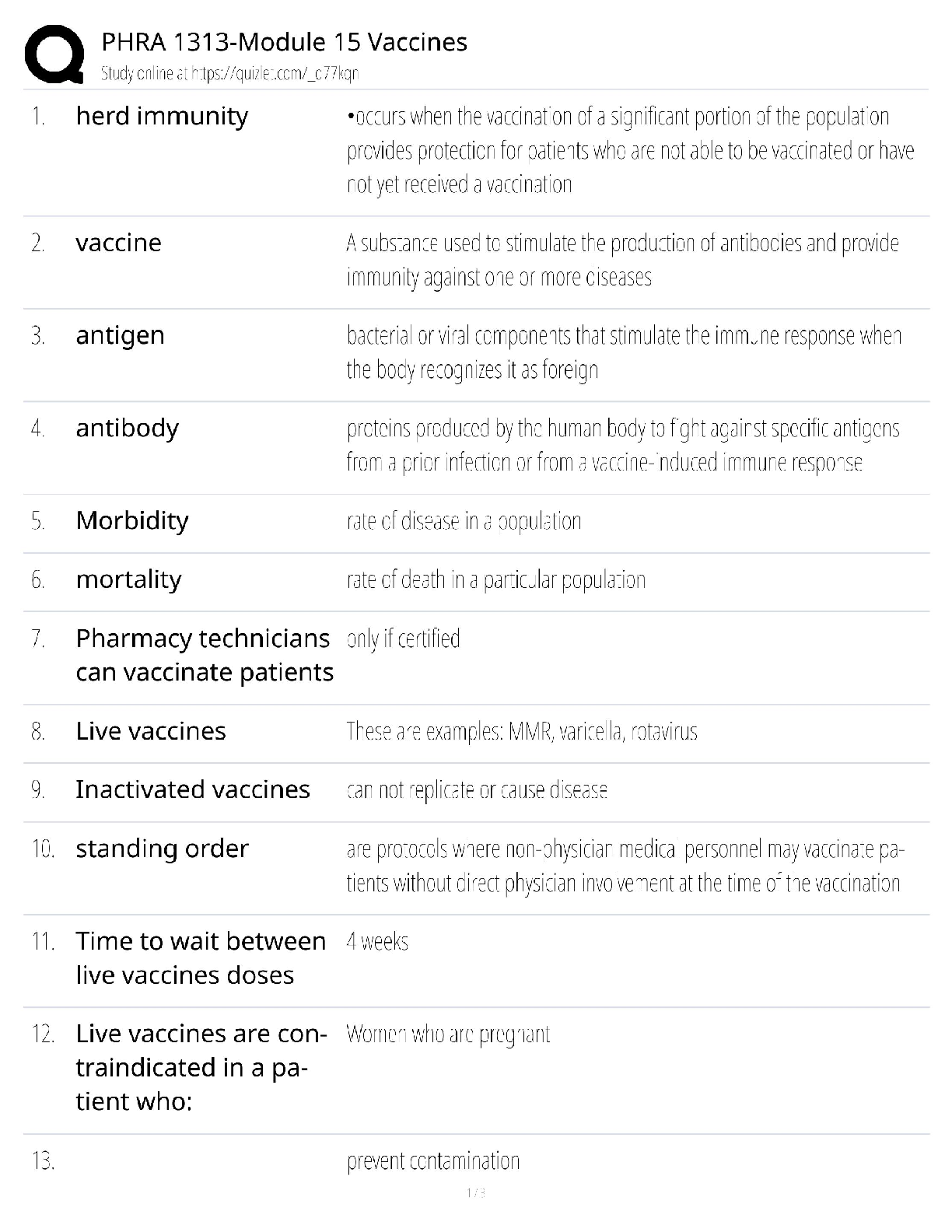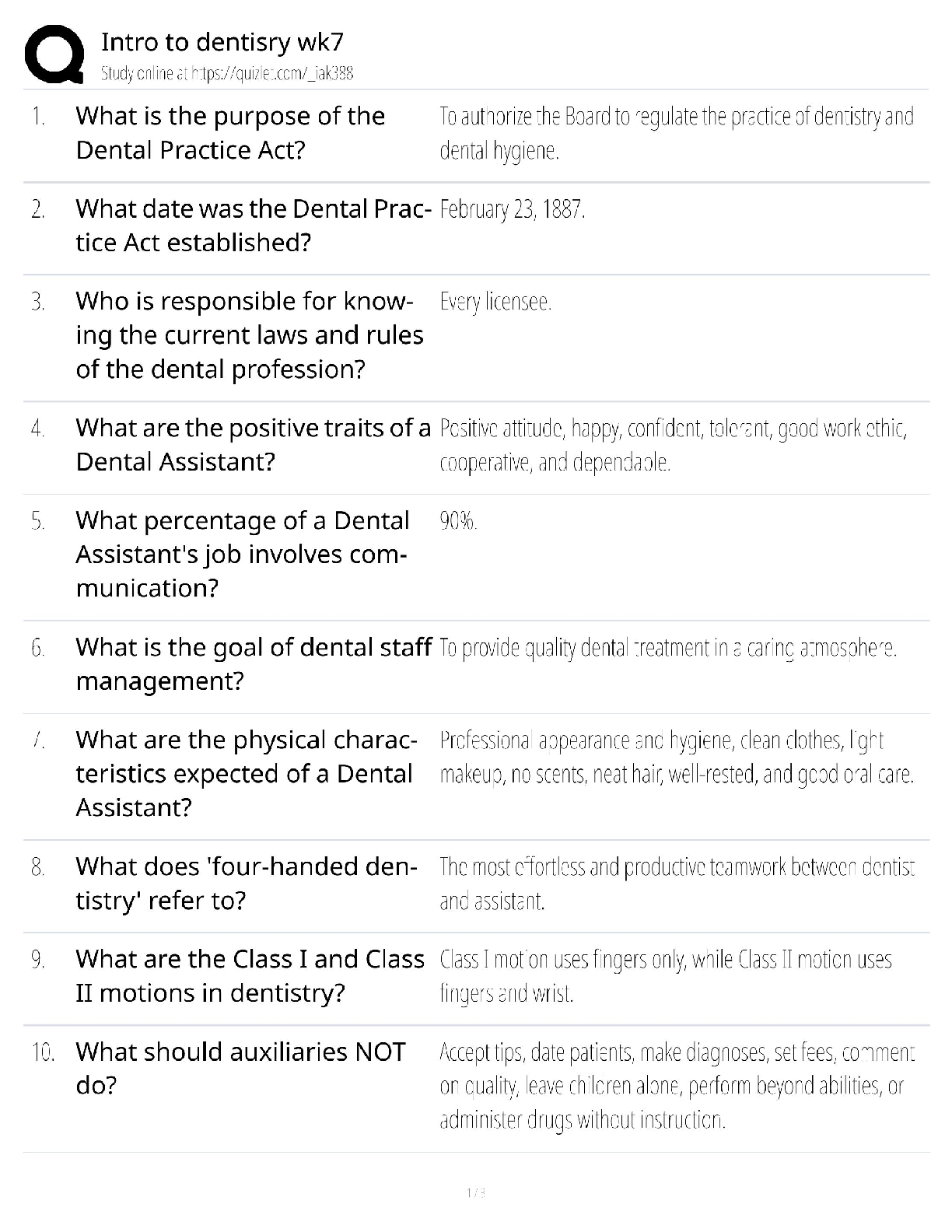Law > QUESTIONS & ANSWERS > CRJ220 Week 5 Quiz - Question and Answers (set 2) Latest all answers correct (verified) Strayer Univ (All)
CRJ220 Week 5 Quiz - Question and Answers (set 2) Latest all answers correct (verified) Strayer University.
Document Content and Description Below
CRJ220 Week 5 Quiz - Question and Answers • Question 1 If we eliminate free will completely, we would also be eliminating: • Question 2 Which of the following is s ... ometimes held to be the only "event" for which there is no cause? • Question 3 If you were to argue that although a person with an IQ of 60 cannot be a world-renown physicist, s/he still has the freedom to choose within limits of what is physically, psychologically, and socially possible, you would be presenting which of the following positions? • Question 4 Self-defense and defense of others would be considered: • Question 5 In simplest terms, determinism holds that: • Question 6 The notion that every event has a cause is the central premise underlying: • Question 7 Identifying and incapacitating people we believe to be at high risk for future criminal activity before they have had the opportunity to commit those future criminal acts is a practice referred to as: • Question 8 Moral responsibility or blameworthiness that attaches to persons who freely and knowingly engage in wrongful actions is sometimes referred to as: • Question 9 Which of the following, though only in its infancy, may be the future standard for detecting dishonesty in police departments and courtrooms? • Question 10 If human beings are, by nature, hedonistic then we naturally seek: • Question 11 Advocates of which of the following often appeal to the harm principle to support their position: • Question 12 Which of the following might help us develop open-mindedness and the virtue of tolerance? • Question 13 Which of the following suggests that governments can and should pass laws to protect citizens from themselves, looking out for its citizens as a father might for his children? • Question 14 Which of the following positions holds that moral beliefs vary from person to person, and that one person's beliefs and practices cannot be said to be more right (or wrong) that any other person's? • Question 15 Planned, premeditated killings of family members whose behavior is judged to have brought shame or dishonor to the family are referred to as: • Question 16 Which of the following, derived from John Stuart Mill, suggests that governments can legitimately create and impose laws only where it is necessary to prevent people from harming others? • Question 17 When we are committed unquestioningly and with absolute certainty to a belief or beliefs, we are guilty of: • Question 18 When we claim that certain moral values or principles (e.g., do not steal) apply or should apply to all people, everywhere, we are saying that some values or principles are: • Question 19 Moral relativism is the idea that: • Question 20 The Comstock Act: • Question 21 Accepting gifts from inmates for special considerations (e.g., choice cells or job assignments) is a form of prison corruption categorized as: • Question 22 Which of the following involves rationalizing misconduct by perceiving informal norms – such as secrecy or loyalty to fellow officers – to be more important than societal laws, norms, or the formal norms of the organization by which one is employed? • Question 23 Which of the following explanations of police corruption diverts attention away from the possibility that corruption is systemic, arguing instead that corrupt acts are committed by only a few "bad" officers within otherwise ethical departments? • Question 24 If, as Plato and others have implied, human nature is egoistic then our actions are motivated by: • Question 25 With respect to religion and morality, the problem of common ground refers to the fact that religious commands and principles: • Question 26 Actions by law enforcement officers that exploit the powers of law enforcement for personal gain (e.g., accepting bribes) can be regarded as: • Question 27 Which of the following refers to the anxiety or discomfort we experience when we deviate from our own internal standards of right and wrong? • Question 28 Which of the following explanations of morality argues that actions are right/wrong, good/bad because they are approved or disapproved of by God (or some other higher power)? • Question 29 A law enforcement officer accepting money or other favors for overlooking traffic violations would be classified as which of the following forms of corruption? • Question 30 Direct misconduct by a police officer, such as extorting money from drug dealers, would be an example of which of the following forms of misconduct? [Show More]
Last updated: 3 years ago
Preview 1 out of 7 pages

Buy this document to get the full access instantly
Instant Download Access after purchase
Buy NowInstant download
We Accept:

Reviews( 0 )
$10.00
Can't find what you want? Try our AI powered Search
Document information
Connected school, study & course
About the document
Uploaded On
Apr 09, 2020
Number of pages
7
Written in
All
Additional information
This document has been written for:
Uploaded
Apr 09, 2020
Downloads
0
Views
157

